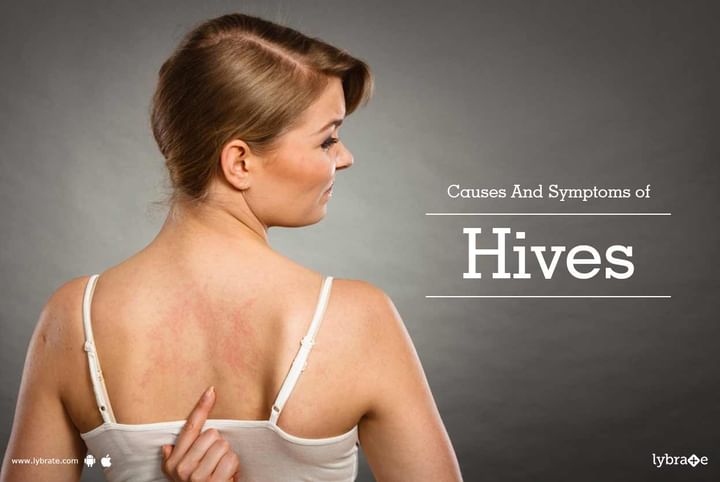Get the App
For Doctors
Login/Sign-up
Last Updated: Oct 23, 2019
BookMark
Report
Causes And Symptoms of Hives
Hives is a very common condition and about 20% of the world has got it at some point in their lives. There are many causes to it ranging from blood transfusions to certain allergic reactions to food. It starts off as an itchy patch of skin but slowly swells and turns into red welts. There are certain factors which makes the itching worse including stress, alcohol and scratching the area of skin which was itchy in the first place.
Causes:
Here are all the causes and symptoms of hives:
- Food: Allergic reactions to foods such as nuts, eggs and shellfish are a common cause of hives.
- Medications: Certain medications also have a side effect of causing hives. Penicillin and sulfa are two of the antibiotics, which can cause hives. Ibuprofen and Aspirin are also two other medications, which are commonly known to cause hives.
- Infections: Both bacterial and viral infections can lead to hives. Strep throat, urinary tract infections, common cold and hepatitis are some of many bacterial and viral infections, which may cause hives.
- Stimuli: Certain factors such as temperature, pressure, sun exposure and other physical stimuli may cause hives as well.
- Plants and animals: Dander in animals are the flakes of skin in their fur. Moreover, coming into contact with certain poisonous plants may cause hives.
- Insects: When insects sting or bite you, you may get hives.
- Latex: Latex is a type of rubber used in many types of clothing. It has been said that wearing clothing made out of latex can cause hives.
- Pollen: Pollen is a light powdery substance produced by plants such as oak trees. It travels through the air and may cause hives if it comes into contact with your skin.
Symptoms:
- Bumps: Itchy red bumps appear on the skin when you have hives. Sometimes, the bumps can be skin-colored as well.
- Blanching: When the bumps turn white after you press them, it is known as blanching. Blanching is the only clear symptom of hives. If you wish to discuss about any specific problem, you can consult a dermatologist.



+1.svg)
